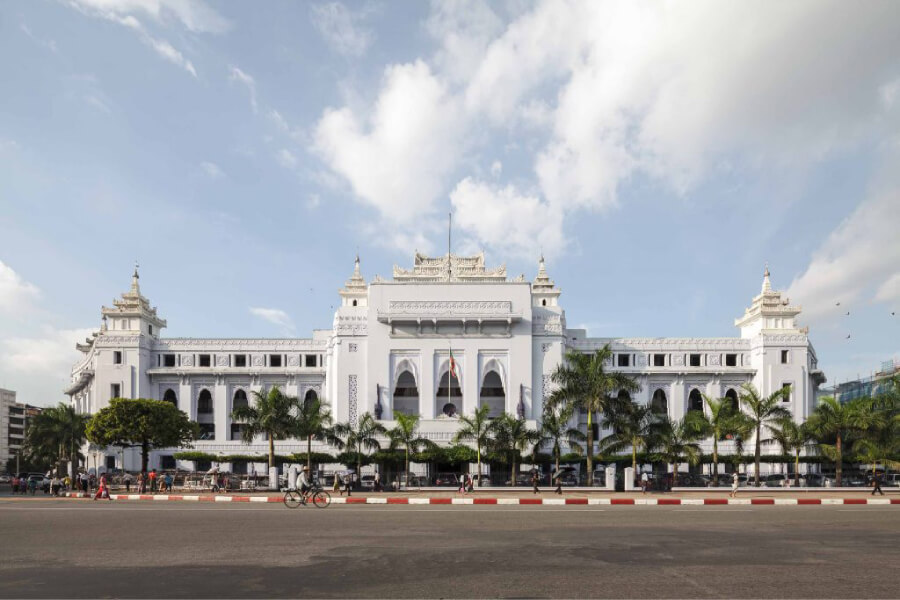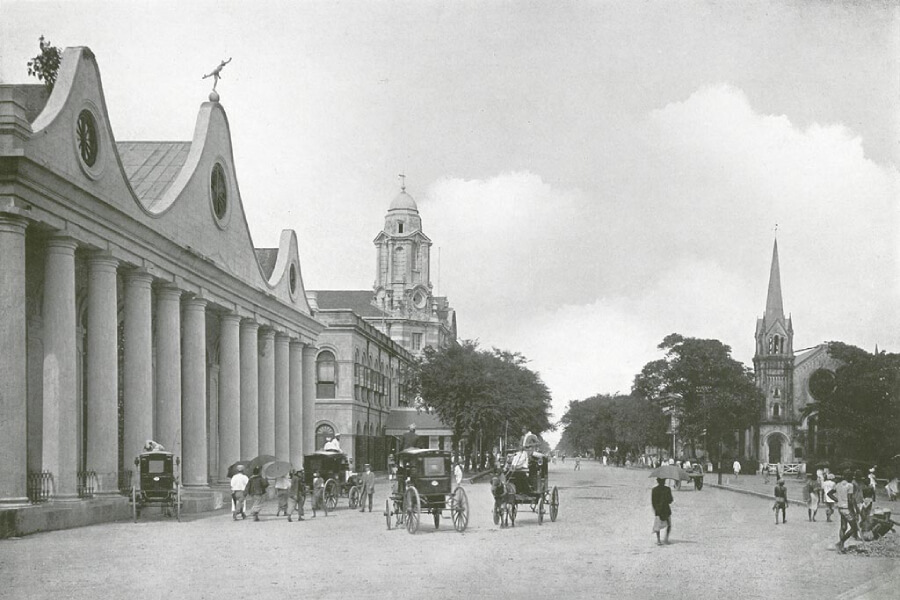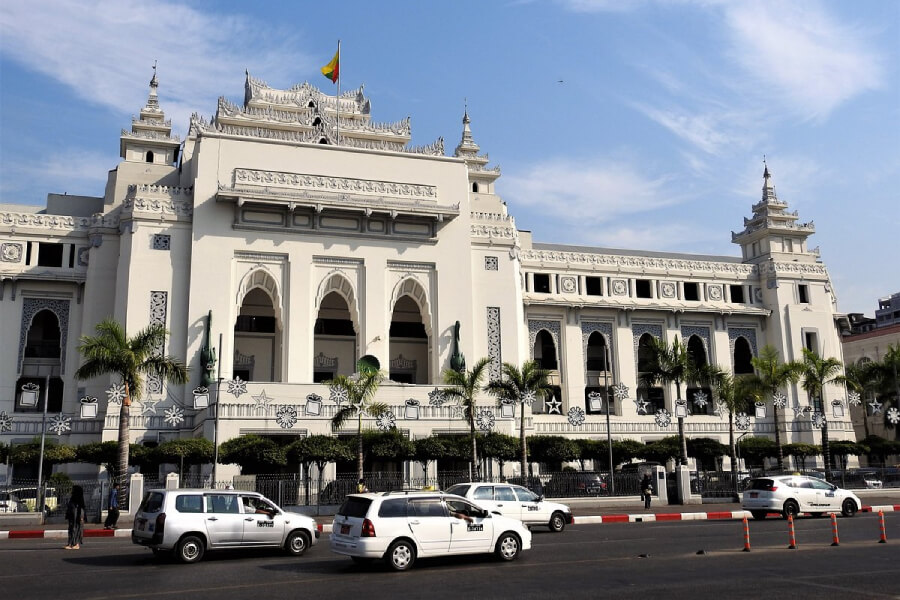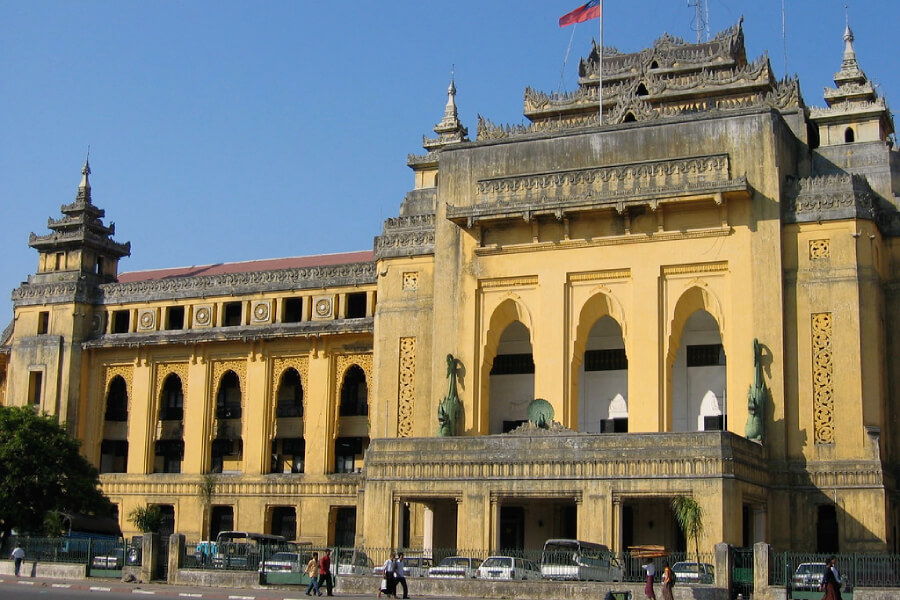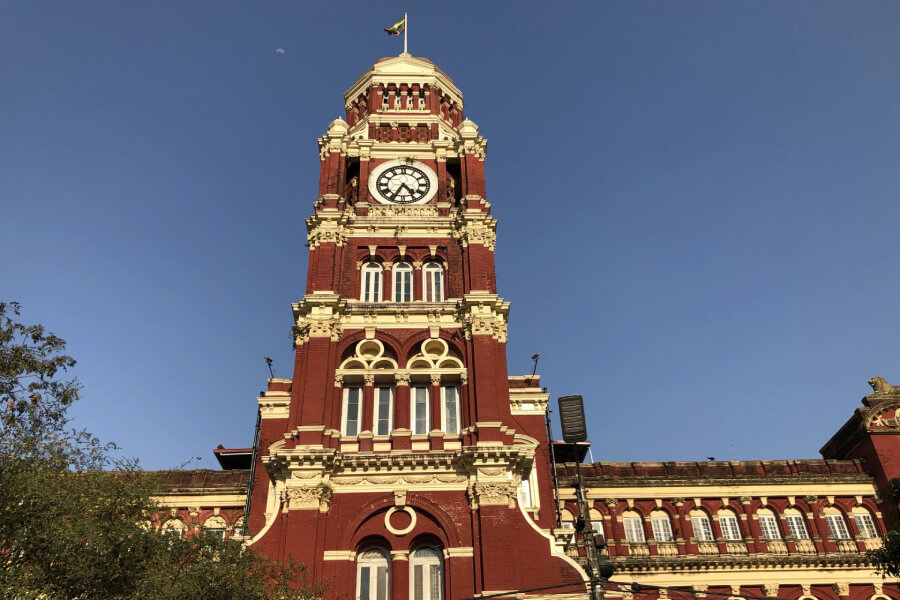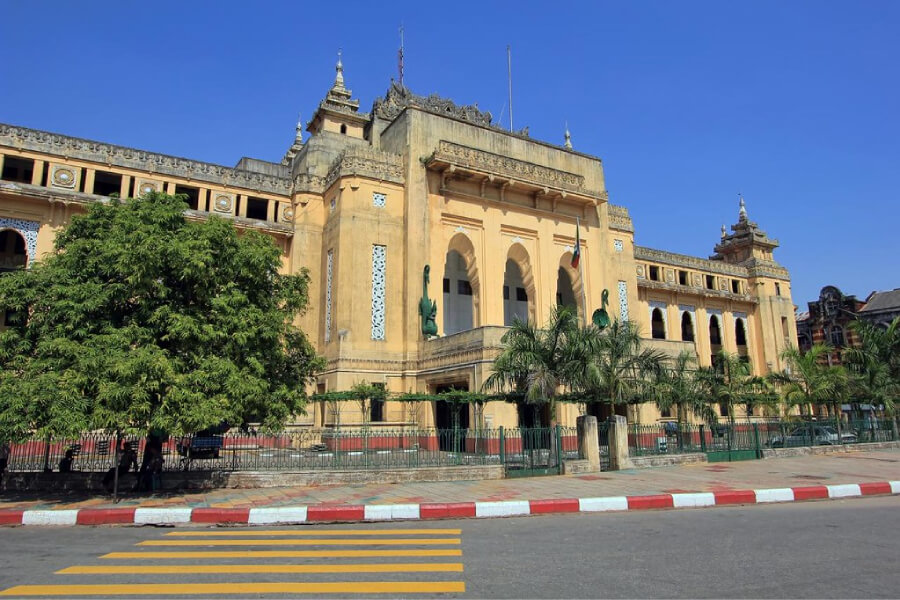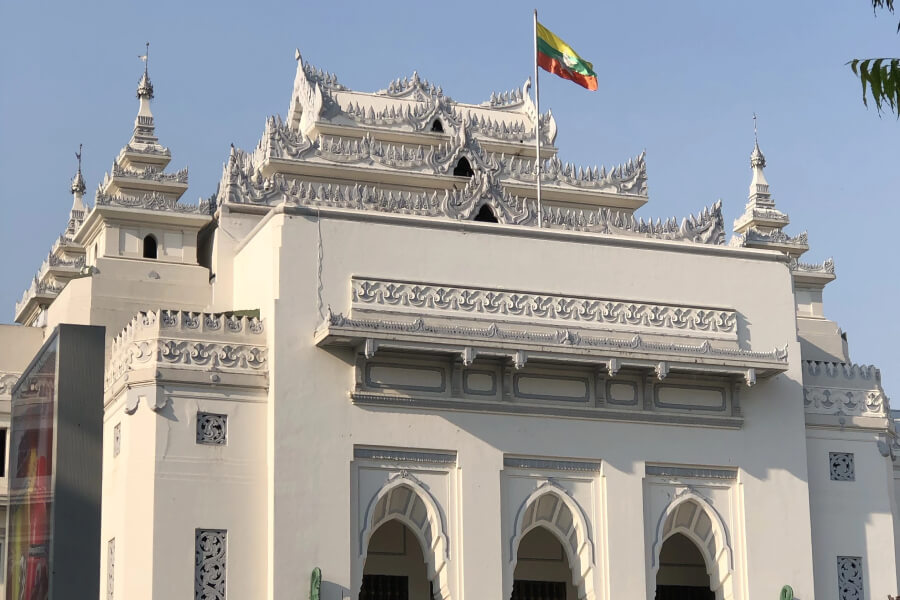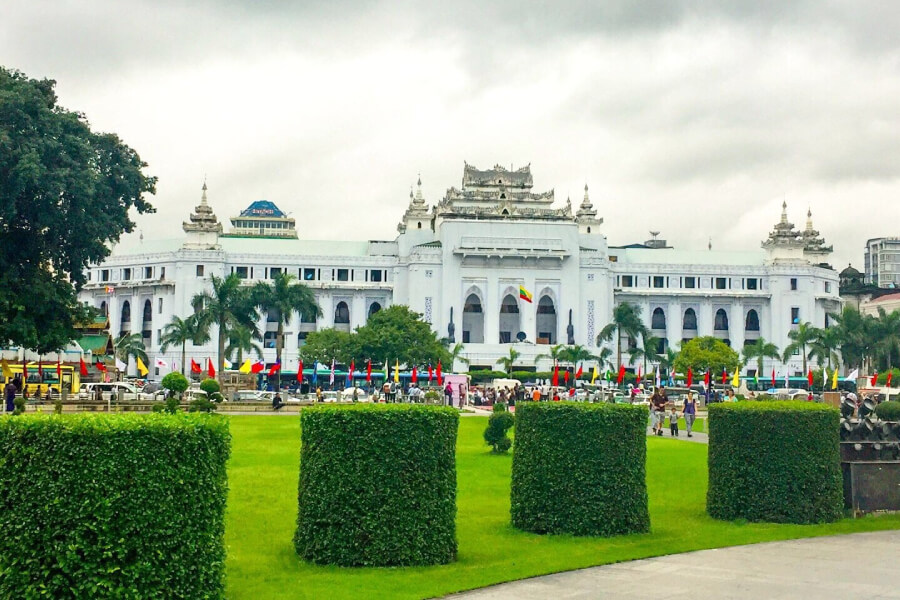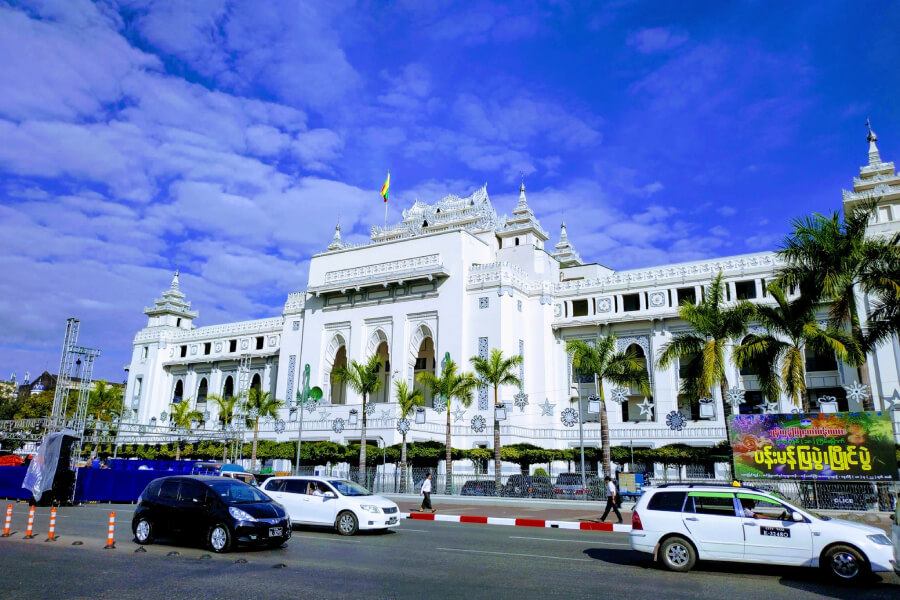Yangon City Hall, an iconic symbol of Myanmar's rich heritage, is not just a government building; it's a treasure trove of architectural wonders that beckon explorers from around the world. As you embark on your journey through this magnificent edifice during your Myanmar tours, be sure to keep an eye out for these five must-see marvels that showcase the building's grandeur and historical significance.
Unlocking the Historical Significance of Yangon City Hall
One of the most defining moments in the annals of Yangon City Hall's history is its association with Myanmar's arduous struggle for independence. This storied location served as a backdrop for pivotal meetings and gatherings, fueling the spirit of resistance against colonial rule. Inside its grand halls and chambers, the voices of prominent leaders and revolutionaries resonated, shaping the trajectory of Myanmar's history. It's where the seeds of independence were sown and nurtured.
Over the decades, Yangon City Hall has functioned as a linchpin of government and civic life in Myanmar. The administrative decisions made within its hallowed walls have left an indelible mark on the city and the nation at large. As a hub for governance, it stands as a testament to the enduring nature of administration, bearing witness to the city's development and evolution over time.
Its construction in the 1920s marked a significant era of urban development and modernization. The architectural design is a reflection of the values and aspirations of the time, capturing the essence of a dynamic city on the cusp of change. The elegant symmetry and proportions of the building represent the ideals of an era characterized by optimism and ambition.
Unveiling Buried Stories in the Halls of Yangon City Hall
The corridors and chambers of Yangon City Hall have a unique way of preserving the voices and echoes of the past. Here, political meetings, discussions, and decisions that have played pivotal roles in Myanmar's history have taken place. It's where the visionaries and leaders of the nation met to chart the course of Myanmar's destiny. The walls themselves seem to echo the fervor and determination that once permeated these rooms.
The political significance of Yangon City Hall cannot be overstated. It was within these walls that debates were held, strategies were devised, and policies were shaped. The city hall served as a nucleus for political activism, reflecting the relentless pursuit of sovereignty and independence that defined an era.
While the significance of the grand political events held at Yangon City Hall is well-documented, there are hidden anecdotes and enigmatic tales waiting to be uncovered. Throughout the building, artifacts and inscriptions hold secrets that provide a unique perspective on the city's history. Each artifact, each engraving, carries a narrative that is yet to be fully deciphered.
Exploring the buried stories within Yangon City Hall is akin to embarking on a captivating journey through time. Every step through its hallowed halls reveals another layer of the city's history. It's a process of discovery and enlightenment, offering a deeper understanding of how the city evolved culturally, politically, and socially.
Explore 5 Architectural Marvel of Yangon City Hall
1. Colonial Splendor - Corinthian Columns and Ornate Arches
The exterior of Yangon City Hall is a stunning example of colonial architecture. The grand Corinthian columns, adorned with intricate moldings, proudly support the structure. These columns, reminiscent of the neoclassical style, are a hallmark of the early 20th century, a period that witnessed the influence of British colonialism. The arches, both graceful and ornate, add to the building's elegance. They are not merely architectural features but also historical artifacts that transport you to a time of change, modernization, and the dynamic interplay of different cultures.
2. The Towering Clock - A Gilded Legacy
No visit to Yangon City Hall is complete without gazing upon its towering clock. Rising majestically above the city's skyline, this iconic timepiece is impossible to miss. But it's not just a functional clock; it's a symbol of regality and an iconic reference point in the city. Crowned with a gilded spire, the clock signifies not only the passage of time but also the enduring legacy of Yangon. It reminds us that, although times change, the essence of the city remains rooted in its history.
3. Burmese Elements - Delicate and Enduring
Amidst the colonial motifs, the astute observer will find delicate Burmese ornaments woven into the architectural fabric. These subtle yet significant Burmese elements reflect the enduring cultural identity of the nation within the colonial framework. They are like whispers from the past, revealing that Myanmar's heritage persevered even in the face of external influence. These delicate touches are not just decorative; they symbolize cultural resilience.
4. Architectural Carvings - Pages of History
Every inch of the façade of Yangon City Hall tells a story. The architectural carvings and design elements are not mere decoration; they are pages from the city's historical manuscript etched in stone. These intricate details convey the values, aspirations, and cultural significance of the era in which the building was constructed. As you examine these carvings, you can almost hear the echoes of the past, offering a profound connection to the city's history.
5. City Hall Gardens
Surrounding Yangon City Hall, the beautifully landscaped City Hall Gardens serve as a tranquil oasis, enriching the experience of this historic architectural marvel. You will find yourself transported to a space where time seems to stand still. With winding pathways, verdant lawns, and shaded alcoves, the gardens provide an inviting setting for leisurely strolls and moments of reflection. These carefully tended grounds not only offer respite from the urban bustle but also serve as a living testament to Yangon's past, hosting cultural events and local wildlife, making them an essential and harmonious complement to the architectural grandeur of Yangon City Hall.
Yangon City Hall: Opening Hours
Operating Hours
- Monday to Friday: Yangon City Hall is typically open from 10:00 AM to 4:00 PM.
- Saturday and Sunday: The building may have limited access on weekends and public holidays.
Respectful Visit
When visiting Yangon City Hall, remember to be respectful of the building and its surroundings. It's a place of historical importance, so conduct yourself with decorum and respect the rules and regulations in place.
Take the time to appreciate the architectural details and the role this building has played in the city's history.

